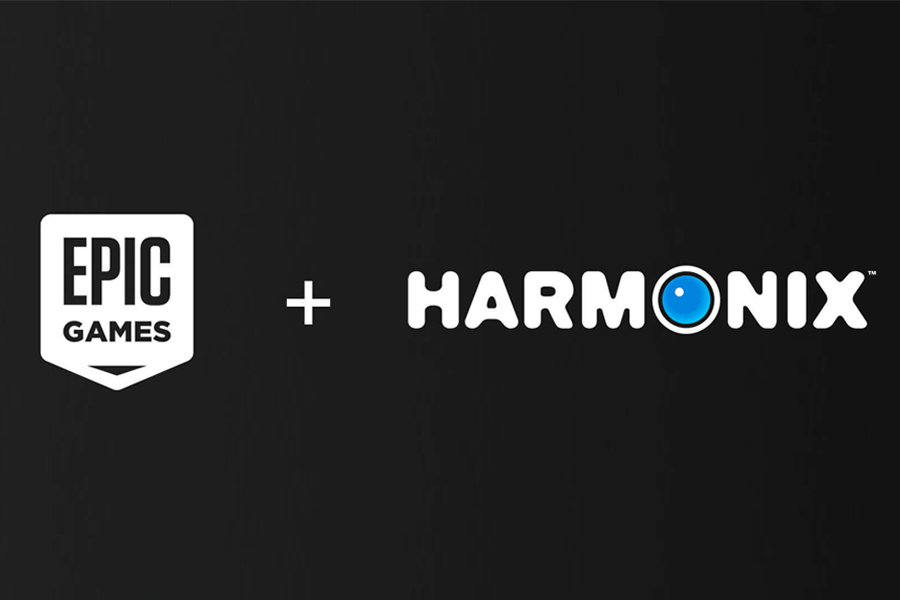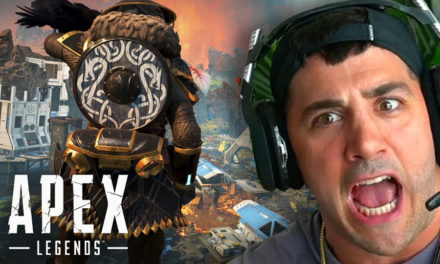Two developers recently teamed up and many gamers are wondering how the Rock Band creators can help Epic Games expand their ‘Metaverse.’
It’s been difficult to avoid Epic Games’ runaway success, Fortnite, since its initial release in 2017. With over 125 million players less than a year after its release and billions in profits, the online game became a cultural phenomenon. Drake and Travis Scott are among the first to jump on board and eager to associate themselves with the game just like its fans. Then as players, they broke Twitch’s previous viewer records by joining streamer Ninja‘s Fortnite Battle Royale stream, which led to Epic Games hosting its own pro-am match-up for the mode at E3 2018.
Fortnite grew from a free-to-play game to one of the most significant and long-lasting media events of the last century in just a few short years. As they play through Fortnite’s various seasonal storylines and events, its millions of players are sharing a common experience. Although many online video games followed a similar model in the past, nothing bled into popular culture in the same way, and Epic Games is only hoping to build on this with the creation of its own “metaverse,” which opens up some interesting avenues with its recent acquisition of indie developer Harmonix.
The metaverse is a somewhat nebulous term that refers to a virtual space that is shared by those who participate in it. Consider Ernest Cline’s Ready Player One, in which humans coexist in the physical world while also coexisting in a shared digital realm thanks to augmented reality. This may appear to be science fiction, but developers are already planning to create a version of it in the near future. While Epic Games’ plans for its own “metaverse” may not be as elaborate as Cline’s, the company’s acquisition of Rock Band developer Harmonix indicates that it is committed to growth and innovation.
Players are already seeing versions of these early metaverse experiences emerge, some in the form of in-game economies, in which players create digital objects and sell, barter, or trade them virtually for real-world currencies or items.
With companies like Facebook acquiring Oculus in an attempt to bring the virtual and real worlds together, it’s no longer a question of “if,” but rather “when” that some form of metaverse will be realized. Epic Games is adamant about getting ahead of the pack and bringing its version of a metaverse to players, with plans to use its massive reach to bring people together in a virtual world.
Epic Games announced in November that it had acquired Harmonix, the company behind the Rock Band, Guitar Hero, and Dance Central franchises. Epic games’ statement says that the Harmonix team will collaborate closely with its company to develop more musical journeys and gameplay for Fortnite and a move that will no doubt pique the interest of music and gaming fans alike.
The exact implications of this collaboration for players have yet to be determined. With Harmonix Co-Founder and Chairman Alex Rigopulos promising to push the creative boundaries of what’s possible and invent new ways for our players to make, share music, and perform, the possibilities seem limitless.
Fortnite already has a long history with music, having pioneered popular ways to bring artists into the in-game world with interactive concerts like Ariane Grande’s Rift Tour or Travis Scott’s Astronomical. In addition to incorporating music and artists into the game world, Fortnite creates a truly immersive experience that would never be possible in real life.
As Epic implements its version of a metaverse where gamers can come together to witness the medium’s wholly unique and collaborative possibilities, the addition of Harmonix could mean that players will have the opportunity to create these kinds of experiential moments for themselves.







